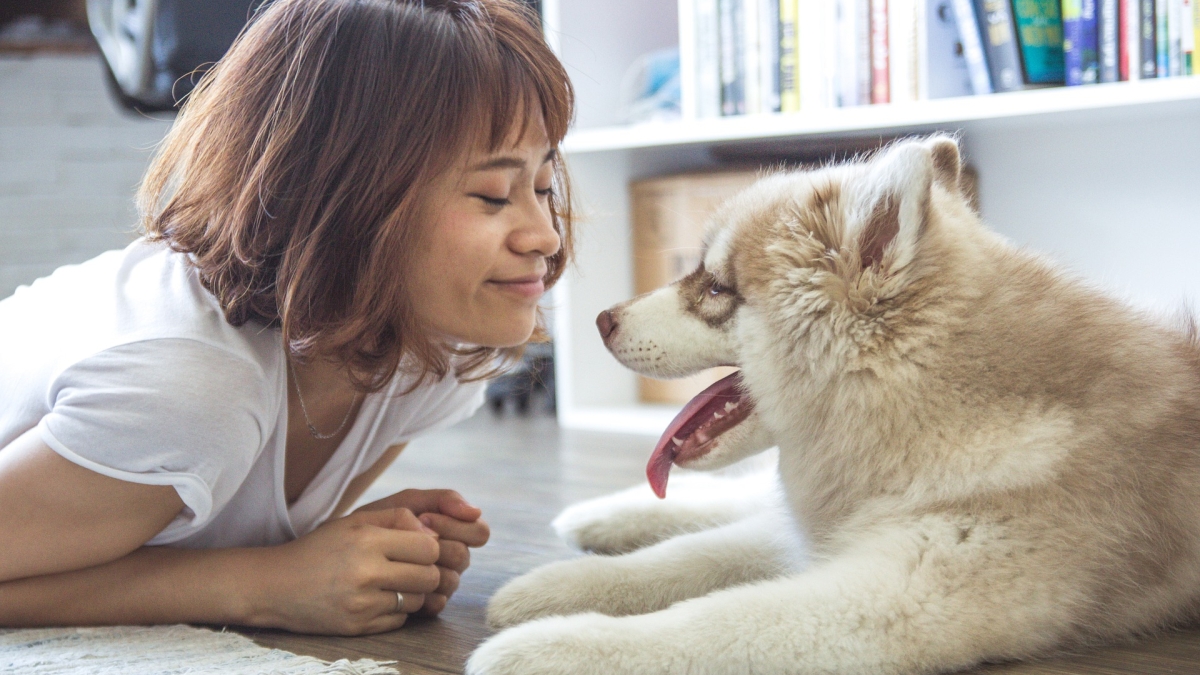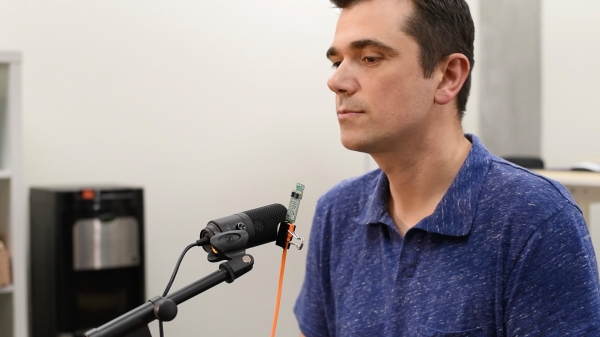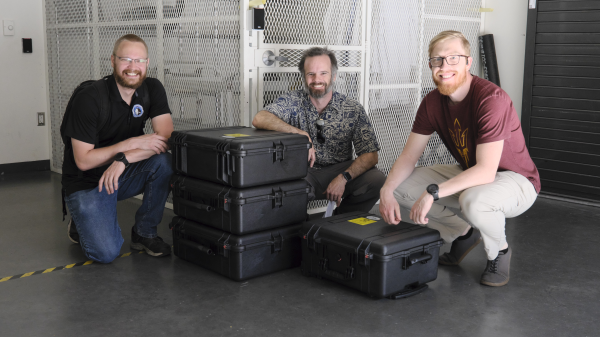A relationship like no other
Latest Thought Huddle podcast explores the deep and abiding love humans have for dogs

It doesn’t take special insight to recognize dog owners love their dogs. A lot. But the latest episode of ASU Now’s Thought Huddle podcast series digs deeper in an effort to unearth the origin of dogs, explore the purpose of dogs and assess what makes dogs special. Of course, heartwarming stories from dog owners are also part of the mix.
Thought Huddle host Mary-Charlotte Domandi speaks to three dog experts to explore the powerful and poignant human-canine bond. These include Greger Larson, University of Oxford evolutionary biologist; Linda Milanesi, executive director of Assistance Dogs of the West; and Clive Wynne, ASU professor of psychology and author of the forthcoming book "Dog is Love."
Right from the beginning, Domandi confesses her own wild affection for dogs. “Full disclosure: I’m a total dog person. When I was in my 20s and lived in a city where I couldn’t have my own dog, I spent so much time stopping people with dogs on the street that my friend called me Mary ‘Can I pat your dog?’ Charlotte.”
This deep connection between the two species has been forming over thousands of years. How did it happen? While acknowledging there are still many questions about the origins of dogs, Larson offers one “plausible” scenario.
“Wolves are very plastic behaviorally” and “adapt very readily to changing circumstances,” he says. A pack of wolves “started following people because they were able to take advantage of the resources that people provided. But then people were also getting more accustomed to having wolves around as well and recognized that there were certain advantages to having them around. If that’s enough to get things going, what happens from there is this ever-closening relationship between people and wolves that leads to dogs.”
And that relationship includes working together. Milanesi’s organization has trained dogs to provide human assistance of many kinds, particularly for people with disabilities and medical issues. Recently, these purposeful roles have included training dogs to work in the criminal justice system, usually with special victim advocates.
This can mean providing a calming and supportive influence for children who’ve faced sexual assault, domestic violence — “just unspeakable crimes like you cannot imagine,” Milanesi notes. “Looking at a dog at rest, you immediately feel safe.” It “lowers your blood pressure, lowers your cortisone levels, lowers your heart rate.”
This makes sense to Wynne, who studies the human-canine relationship and leads ASU’s Canine Science Collaboratory. “It is actually dogs’ ability to capture our affections and reciprocate our affections … that makes dogs so successful.” Above and beyond any other talents, “the remarkable thing about dogs is their capacity to form strong emotional connections.”
Find more episodes at thoughthuddle.com.
Top photo by Tranmautritam/Pixabay
More Science and technology

ASU researchers develop special microphone to verify human speech
Deepfakes have become a large societal concern with the advent of video and audio content generated by artificial intelligence, or AI. A deepfake is a convincing imitation that blurs the lines…

Leading students toward a future of renewable energy
Nicholas Rolston, assistant professor in the School of Electrical, Computer and Energy Engineering, one of the Ira A. Fulton Schools of Engineering at Arizona State University, has found his passion…

SPARCS mission spacecraft bus delivered to ASU for final assembly
The Arizona State University team that is building the NASA-funded Star-Planet Activity Research CubeSat, or SPARCS, cleared a major milestone this week — receiving its spacecraft bus at the School…